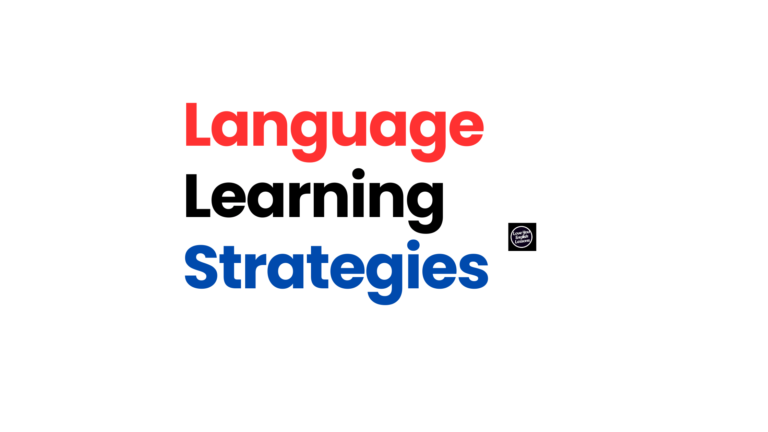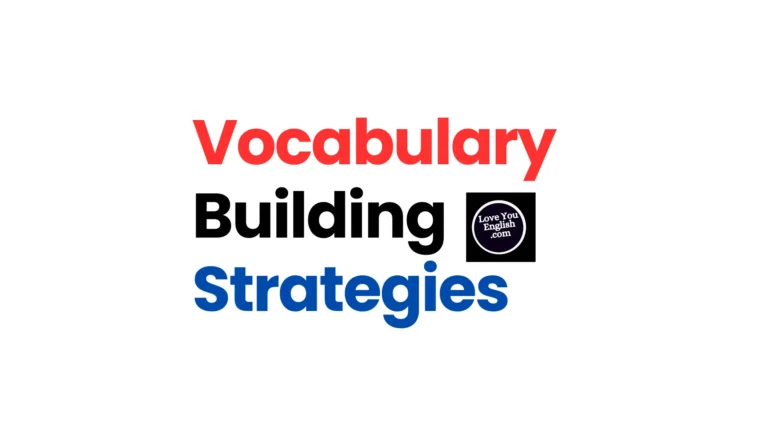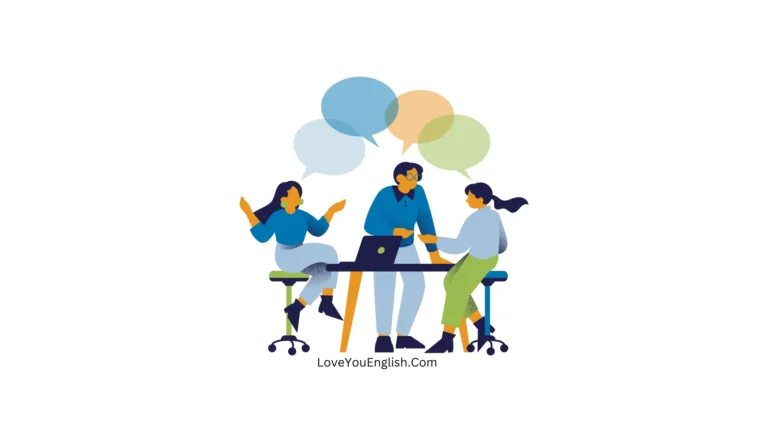Tips to Learn English Faster in 2024
Hello everyone,
So, I heard you wanted to improve your English skills.
Well, you’ve come to the right place.
Plan for improving English
In this lesson, I will provide you with what I believe is an excellent plan that will assist you in learning English effectively.
Welcome to this lesson where I’m going to share with you what I consider the best way to learn English in the year 2024.
There are a few things that you’re going to need. You’ll require approximately one hour per day, Monday through Friday, to follow this English learning plan.
If you don’t have an hour daily, you can allocate 30 minutes, but ensure that you prioritize the activities I recommend for that day.
Additionally, you’ll need a notebook and a pen, as well as an English song, an English book to read, and an English television show to watch.
Having all these resources will prepare you adequately.
Oh, and of course, you’ll need an Internet connection, which I assume you already have since you’re watching this video.
When you’re learning a language like English, it’s crucial that you allocate equal time to reading, writing, listening, speaking, and expanding your vocabulary.
The method I propose involves engaging in these five activities every day from Monday to Friday. So, let’s break it down day by day, starting with Mondays.
On Mondays, your primary focus should be on reading in English.
Pick a book of your choice and aim to read it. If you encounter difficulty understanding the text, consider finding the book in your native language as well.
You can then alternate between reading one chapter in English and the next chapter in your native language. This alternating approach can be quite effective for comprehension.
Additionally, on Mondays, I encourage you to read the news in English. Utilize news apps on your phone or access news websites to stay updated with English-language news articles.
And the third thing I would like you to do on Mondays is to visit a website called Simple Wikipedia.
Simple Wikipedia is the English language version of Wikipedia but presented in a more accessible and straightforward manner.
It is designed to assist individuals who are learning English by providing articles that are easier to read and understand compared to regular Wikipedia.
So, I’d like you to spend about 30 to 40 minutes on these activities.
While you are engaged in these tasks, make sure to jot down any new vocabulary words in your notebook along with a brief definition of each word.
Once you have completed these tasks, I encourage you to utilize the remaining time to enhance your writing, listening, and speaking skills in English.
Although reading will occupy most of your time on Monday, allocate a small portion of time for the other three components as well.
For English speaking practice, read aloud a portion of your book to yourself.
This will also help in improving your writing skills.
On Mondays, dedicate some time to transcribing a few passages from the book to further strengthen your listening abilities.
It would be really cool if you could find the audio version of the book you are reading and listen to it for a bit. So that is Monday.
On Monday, your focus is reading. Spend 30 to 40 minutes reading and then the rest of your time practicing the other aspects of learning the language, but in a way that is still related to the book you are reading.
On Tuesdays, your focus will be writing. I want you to spend 30 to 40 minutes writing in English. The first thing you should do is write in your notebook.
Write down five things that you did the day before so that you can practice writing in the past tense.
Also, write down five things that you are going to do the next day so that you can practice writing in the future tense.
Additionally, go to YouTube and leave a few comments in English on a few videos. This is a really good way to practice your English as well.
Many times, if you leave a comment on an English video, someone will respond, sometimes even the creator.
So, go to YouTube and write a few comments to some of your favorite YouTube creators.
The next thing I would like you to do is return to your notebook and jot down a few things that you like and dislike about the book you are currently reading.
This is an excellent method for you to begin expressing your preferences in English, which is a valuable skill to develop.
Additionally, in your notebook, endeavor to write about 5 to 10 sentences in English that encapsulate the essence of the book or summarize what you’ve recently read.
While doing so, don’t hesitate to look up new words for usage; make sure to record these words in your notebook as well.
Ideally, you should have a vocabulary section in your notebook where you add new words regularly.
For instance, if you added a few words on Monday, add a few more on Tuesday.
On Tuesday, dedicate about 30 to 40 minutes to writing. Following this, allocate some time for reading—review what you have written.
Then, engage in a bit of listening practice by inputting some of your sentences into Google Translate and clicking the speaker button to hear how they sound in English.
Finally, read your sentences aloud in your own voice to practice speaking.
I forgot to mention this about Mondays, but if you finish the day’s work on Monday, you’ll have time for reading on Tuesday.
If you complete your writing tasks, spend the remaining time on Duolingo or simply listen to the song you’ve chosen for the week.
The song should be something you listen to regularly throughout the week. Moving on to Tuesday, your primary focus is on writing.
On Wednesdays, I recommend concentrating on listening, which could become your favorite study day for English.
Following this plan, watch a television show in English, listen to your chosen song multiple times in English, watch some YouTube videos in English, and if you have an audio book for your current reading, listen to a few chapters.
These listening activities should occupy most of your hour, but if you still want to work a bit more at the end of the hour, consider reading about the television show, writing about it, expressing your feelings about the song, repeating lines from the show, mimicking actors’ speech to improve your accent, or singing along to the song.
Throughout these activities, continue adding new vocabulary words to your notebook that you encounter while watching the show, listening to the song, and engaging in other listening exercises.
On Thursdays, I want you to focus on speaking.
So, for the one hour that you study English on Thursdays, 30 to 40 minutes of that hour should be spent speaking English.
English learning resources
The best way to practice speaking English is to hire an English tutor whom you can meet via FaceTime or Skype.
There are websites like Preply, Cambly, or italki, where you can hire a native English speaker to have a conversation with you if you have the money and can afford it.
This is money well spent. It is a really good investment.
The fact that you know you will be talking to a native English speaker every Thursday will actually make you work harder on Monday, Tuesday, and Wednesday, as well as Friday each week, in order to get ready for that session.
When you do talk to a native English speaker, talk about the television show that you are watching. Talk about the book that you are reading.
You’ll have a lot of things that you can share with them in an English conversation.
If you cannot afford to hire someone, you still need to speak English on Thursdays; you can just talk out loud to yourself. You can narrate your life.
I did another lesson where I explained a few of those things. But certainly on Thursdays, do whatever you can to get in 30 minutes of speaking in English.
The rest of the time on Thursday, you can do whatever you need to do. Maybe listen to your song again and sing out loud; that’s also speaking.
Read your book, but read it out loud; that’s also speaking.
Or watch your TV show and kind of again shadow or mimic some of your favorite actors. Anyway, Thursday is the day that you should be speaking English a lot.
On Fridays, I want you to focus on vocabulary. On Monday, Tuesday, Wednesday, and Thursday, you wrote down new words and their definitions in your notebook.
Hopefully, you are doing that on Friday. I want you to read over all of the new words. I want you to say them out loud.
I want you to utilize the new vocabulary in sentences, practicing them until you have them committed to memory.
If you are acquainted with platforms like Quizlet, create a Quizlet set incorporating all the new words and repeatedly practice it.
Alternatively, if you prefer making flashcards or writing out the vocabulary multiple times, opt for that method instead.
However, on Friday, dedicate all your time, the entire hour, to ensuring you have memorized all your new vocabulary.
I believe you will greatly benefit from this approach. Therefore, from Monday to Friday, you will be focused on learning English.
What about the weekend?
There are a few activities you should engage in over the weekend to make this English learning plan effective.
Firstly, discover a new song every weekend to incorporate into your learning for the following week.
Additionally, if you have finished reading your current book, visit the library, order a new English book online, or borrow one from a friend.
Likewise, if you have completed watching all episodes of your current television show, find a new show to watch or take a break.
Taking breaks from learning can actually rejuvenate your mind and enhance your ability to learn in the subsequent week. I trust you will find this plan beneficial.






